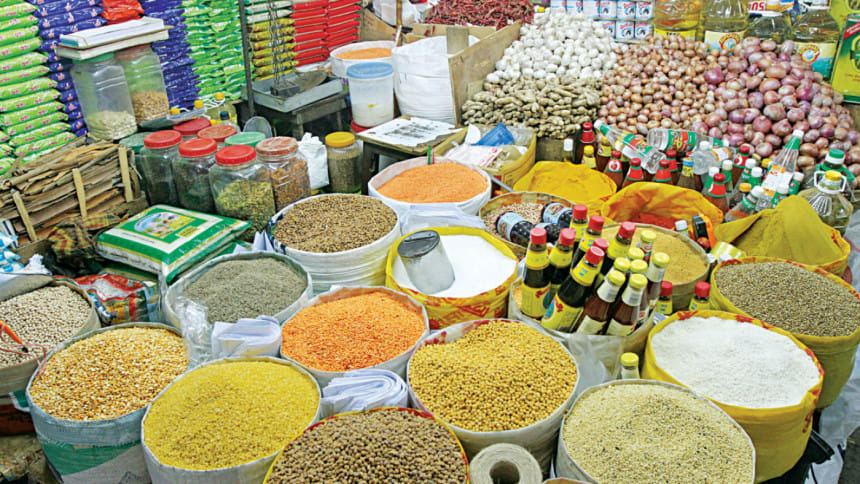Price Manipulation: 3 laws there, but not much enforcement
GBNEWS24DESK//
There are at least three laws and as many government bodies to protect the consumers from price manipulation, but it goes on unabated due to lax enforcement of the laws and a lack of coordination among the government organisations, say commodity experts.
According to them, unscrupulous businesspeople have been making extra profits over the years at the expense of consumers. This becomes more evident ahead of and during Ramadan and Eid, and after any minor disruption to the supply chain.
The Control of Essential Commodities Act-1956, Consumers’ Right Protection Act-2009, and Agricultural Marketing Act-2018 are there to check abnormal price hikes and punish the violators.
The Directorate General of Food, the Directorate of National Consumers Right Protection and the Department of Agriculture Marketing (DAM) are responsible for enforcing those laws.
But fair price remains a distant reality in the country, said Mosammat Nazmanara Khanum, former secretary of the food ministry.
“It’s like a cat and mouse game. When the prices of essentials shoot up on different occasions, drives are carried out. Those only bring some temporary relief, but the problem persists,” she said.
Consumers have been struggling to cope with the price volatility for about two years. The situation worsened in the last six months after the overall inflation rate hit 9.5 percent in August last year, the highest in 12 years.
The food inflation also increased during this period because of the economic crisis stemming from the Russia-Ukraine war and the Covid-19 pandemic.
LAWS THERE, BUT ENFORCEMENT LAX
The Section 19 of the Agricultural Marketing Act says that a person will be sentenced to a maximum of one year in prison or fined Tk 1 lakh or both for creating an artificial crisis of farm produce, agricultural ingredients and essential goods and making an more profit than that fixed by the government.
Creating obstructions to the transportation of agricultural goods, cheating in weighing, not displaying both wholesale and retail prices at visible places, and failing to supply goods from stocks as per the government’s directives during a crisis period are also punishable offence as per the law.
For similar offences, the Consumers Right Protection Act and the Control of Essential Commodities Act have stipulated different punishments.
The food ministry is working on amending the Control of Essential Commodities Act to incorporate in it a provision for capital punishment for hoarding, said officials.
“There are many laws in our country but the problem lies in their implementation,” said Mohammad Yusuf, a former director general of DAM.
Of the three government organisations, the DAM works closely with farmers for marketing of agricultural products.
Last year, the department fixed the profit margins for retailers of essentials after a meeting with the stakeholders. But there was no visible monitoring afterwards.



Comments are closed.